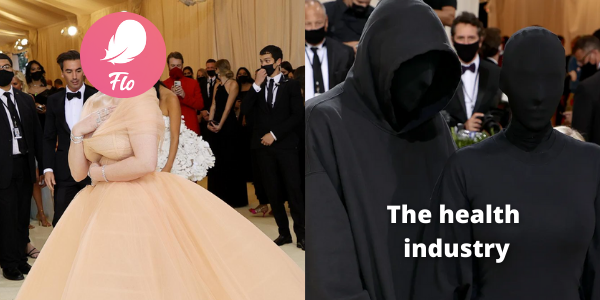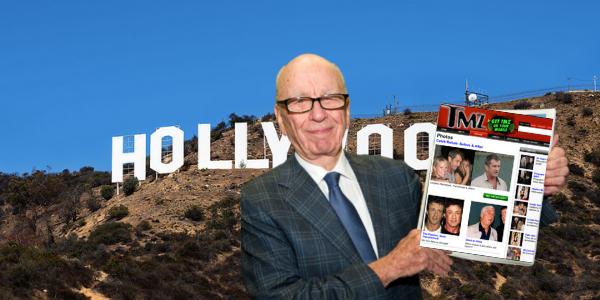Get smarter than your boss in 3 minutes with today's business news.
🧻 Aussie start-up with a cause Who Gives A Crap raises $41.5 million
📱 Women's health tech app Flo raises US$50 million
💰 Fox Entertainment buys TMZ for ~US$50 million
Happy Friday Flux Fam!
It's the last day of the Flux daily 1 min quiz. Who will win the $100 JB Hi-Fi voucher?!
Here's everything you need to know today - in under 3 minutes.
🧻 Aussie start-up with a cause Who Gives A Crap raises $41.5 million
📱 Women's health tech app Flo raises US$50 million
💰 Fox Entertainment buys TMZ for ~US$50 million
Reports show Facebook let nearly 6 million politicians and celebs break its tough content moderation rules. Essentially, this crew were allowed to post things that we couldn't. Talk about double standards.

Background: Who Gives A Crap is the Aussie toilet paper start-up that launched back in 2012, with a massive mission. Its founders realised that around 2.4 billion people across the world didn't have access to a toilet.
What happened: So, they raised $50k in a crowdfunding campaign to start selling toilet paper. But they're not your run of the mill 3-ply toilet papers, Flux fam. They donate 50% of their toilet paper profits to help build toilets and improve sanitation in the developing world.
What else: So far, the company's donated more than $10 million to the cause. And they've secured a massive $41.5 million in their first-ever funding round, led by Atlassian co-founder Mike Cannon-Brookes. The company will use its investment to expand their social impact.
💡Social impact investments are investments made with the intention to generate a financial return and a positive social impact. And companies like Who Gives A Crap sit at the perfect intersection between both.
💡The impact investment market aims to address real-world challenges, like renewable energy, microfinance. Or, like Who Gives A Crap, it could be access to proper sanitation.
💡A decade ago, the social impact investment market was almost non-existent. Now, it's booming. Global impact investing hit over US$1 trillion last year. In Australia, it hit nearly $20 billion.

Background: Flo (which has no connection to rapper Flo Rida) is a women's health tech app founded back in 2016 to help women track their fertility window.
What happened: Since then, the app has grown to around 200 million users globally, and it's expanded its features to offer a personalised cycle analysis. It also offers connects users to content and expert-led courses, so they can be more proactive about their health. Neat, huh?
What else: Over the past 12 months alone, Flo's subscriber base has increased four-fold. And, thanks to a new US$50 million capital raise that just closed, the company's now valued at a whopping US$800 million. Yeah the girls.
💡Women's health tech - or fem-tech - is become an increasingly competitive space. Five years ago, the word 'fem-tech' didn't even exist. But in less than five years time, the industry has the potential to reach a huge US$50 billion.
💡Historically, men have gotten the lion's share of attention when it comes to health-tech. But in recent years, there's been a big push to close the gender health gap.
💡And investors are catching on. They're recognising an opportunity to reach an under-served market. Now, we see tonnes of apps and tech hardware dedicated to women's health. Even Apple (finally) added a cycle tracking feature in their Health app.

Background: TMZ is the tabloid journalism online newspaper which started back in 2005 - ya know, at the height of tabloid culture.
What happened: TMZ is famous for its massive scoops - but it's also been pretty heavily criticised of how it breaks this news. And in a weird turnaround, TMZ has now found itself at the centre of a scoop.
What else: The company used to be owned by WarnerMedia. But WarnerMedia's parent company AT&T wanted to shed some less valuable assets and pay down it debts to invest in 5G. So it sold TMZ to none other than Aussie billionaire Rupert Murdoch's Fox Entertainment.
💡When a company decides on a strategy for its future, it needs to assess its existing assets and decide whether they still fit within the company's core strategy.
💡For AT&T, a big telco company, the future is mainly around 5G. So it's hard to see how TMZ - which breaks stories like Conor McGregor caught making a late night run to LA Supper Club - fits into AT&T's long-term goals.
💡But shedding assets - or divesting - can happen for lots of reasons, like:
Sign up for Flux and join 100,000 members of the Flux family